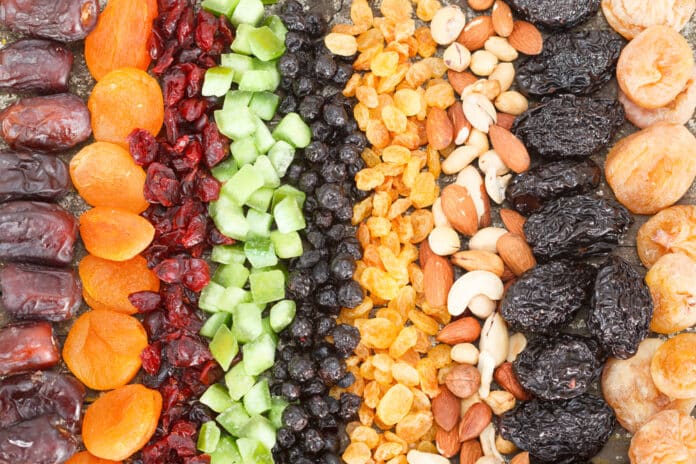
One of the oldest ways of food preservation is drying or dehydrating under the sun or in the oven. It keeps foods edible and extends their shelf life. While dried food retains most of its nutritional value, some vitamins A and C may be lost during the drying process. In addition, the calorie count may increase because of the decreased volume and increased concentration of nutrients.
This article will discuss some of the most popular dried foods, their nutrient compositions, and how they can affect your health.
How Common Dried Foods Affect Your Health
Dried Apricots
Dried apricots have more of almost every vitamin than their fresh counterpart. Compared to fresh apricots of the same size, the amount of fiber in a portion of 5 or 6 dried apricots is greater. The mineral content of dried apricots is higher as well. Unfortunately, they contain a lot more sugar and calories than other foods. And drying them destroys a lot of vitamins A and C. Consuming a diet high in fiber, such as in dried apricots, has been shown to reduce the danger of developing cardiovascular disease, diabetes, and even some cancers.
Beef Jerky
Dried meat strips are what the Spanish call “charqui” and what we call jerky. You can make them with ground beef, ground pig, ground turkey, or ground chicken. Regarding protein content, beef jerky is high, with around 9 grams per ounce. It has a low glycemic index and is a good source of iron, zinc, and vitamin B12. This food has a high salt content. You can get about 22 percent of your daily requirement from just one ounce, and around 14 mg of cholesterol can be found in a single ounce.
Dried Berries
Dried berries typically include more beneficial nutrients, such as iron, fiber, and potassium, than their fresh fruit counterparts. However, the sugar and calorie content increases when the water is taken out. In addition, blueberries are so popular because they have antioxidant content. While they retain some potency, drying can remove as much as half.
Raisins
Raisins provide cellular protection since they are high in antioxidants. Furthermore, they include beneficial nutrients like iron, fiber, and potassium. The drying process causes raisins to lose water and shrink, which results in a higher concentration of calories and sugar that remains. What’s more, some varieties include extra sugar. There are 17 grams of sugar in 60 raisins, which is about a hefty handful.
Dried Vegetables
Dried vegetables, ranging from kale to squash, can be enjoyed as snacks or stored later in soups and other meals. Dried vegetables, much like dried fruit, can retain more nutritional value after drying. But drying can also cause them to lose some of their vitamin A and C content.


















